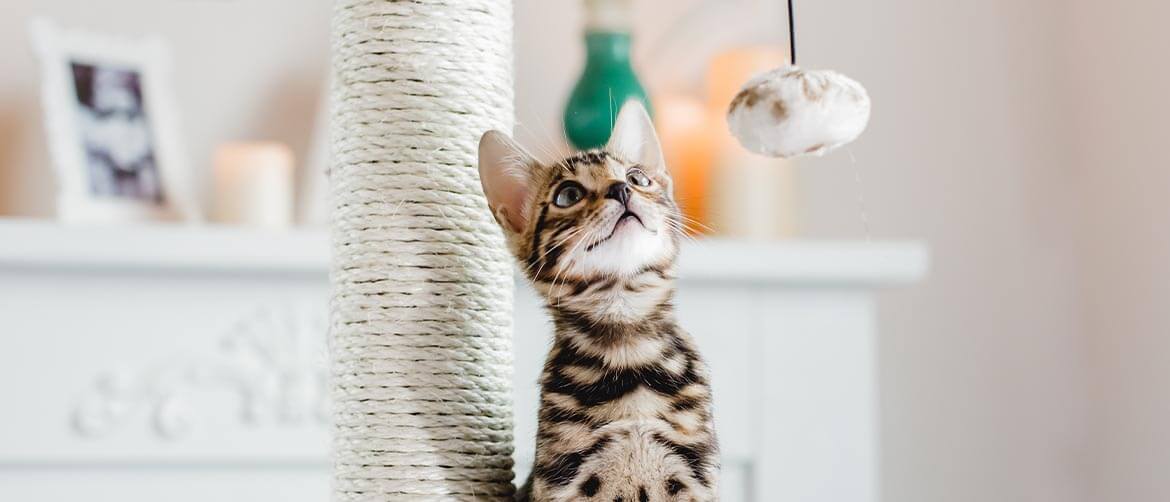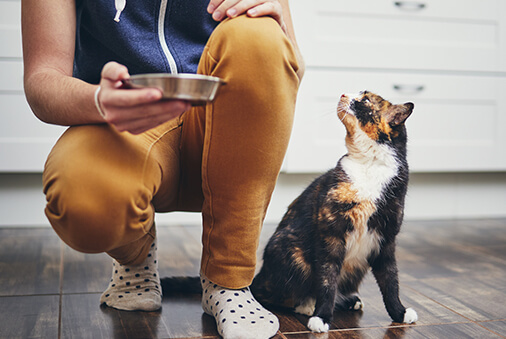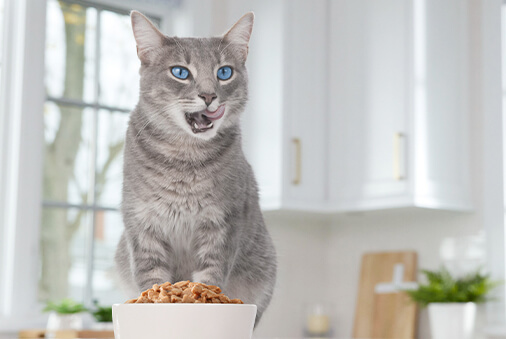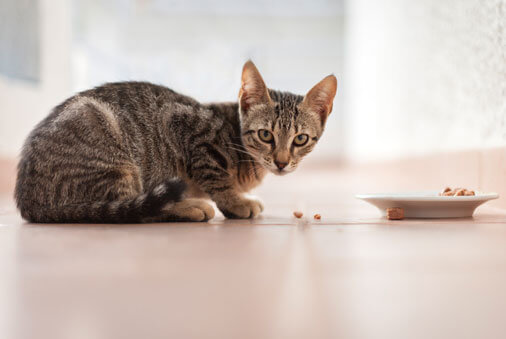Does your kitten have a loose tooth? Kittens, like humans, grow baby teeth (which are called deciduous teeth) that start to fall out around three months old to make room for their brand-new adultchompers.
As a Pet Parent, it’s important to know the signs of teething so you can help relieve you feline’s pain. Here are the key points of kitten teething:
Watch for rogue teeth.
You might find a tiny tooth on the ground or in your kitten’s bed. Or you might not find any at all — many kittens swallow their baby teeth (nothing to worry about). And you’ll probably be more aware of teething through changes in your kitten’s behavior.
There may be whining, drooling, and nibbling.
Teething kittens like to bite and chew on anything they can find to relieve sore gums, so watch your toes, fingers, and electrical cords! Redirect her to a soft chew toy whenever she starts to bite something she shouldn’t be munching on. You may also notice your furball whining a bit or drooling from the discomfort — that’s a normal response, and it should pass.
Appetite may be absent.
If you feed your kitten dry food, add a little wet food at mealtimes to help her through the teething pains.
Try toys made for teething kittens.
There are many soft chew toys available specifically for teething cats. Search for chews that can be put in the freezer, too — chilled toys are often effective at alleviating sore gums.
Establish a dental routine after teething is done.
While tooth brushing is important to start in kittenhood, it’s best to avoid brushing during teething — it can be painful. If your kitten associates brushing with discomfort, it can make dental care more difficult in the future.
Check on the chompers weekly.
Sometimes adult teeth come in but the baby tooth doesn’t fall out. Open your kitten’s mouth gently and check her teeth every week to make sure this doesn’t happen. If you notice a stubborn baby tooth, schedule an appointment with your veterinarian; the tooth may need to be extracted. When your kitten is about six months old, you can schedule another checkup to ensure her adult teeth are growing properly.
Teething is a natural part of life, and the discomfort won’t last forever! These tips can help ease gum soreness for your pal as she makes way for a brand-new set of pretty pearly whites.





